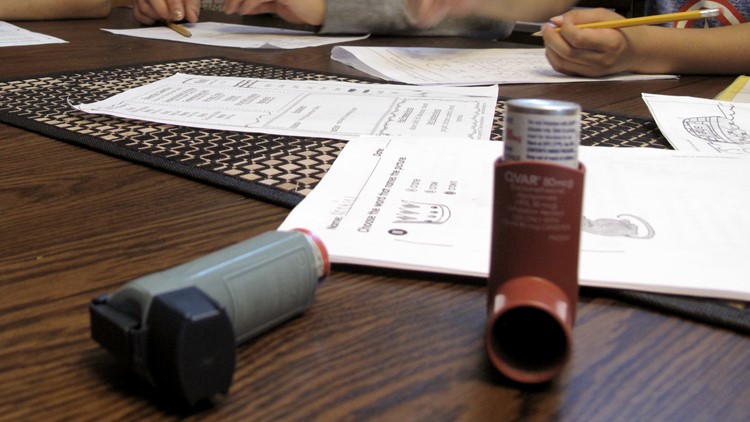The extension of social distancing guidelines by the Trump Administration means it will be necessary for people in the United States to continue taking precautions until the end of April.
As the wait to flatten the curve continues, many people with compromised immune systems, like those with asthma, are wondering if they are taking proper safety measures to ensure their health.
Some asthmatics have questioned whether their asthma medicines could make the disease worse if they do contract COVID-19.
THE QUESTION
Does using a nebulizer or other asthma medications make COVID-19 worse?
THE ANSWER
No. In fact, people with asthma should continue taking their medication as needed in order to alleviate potential symptoms of the virus.
WHAT WE FOUND
Having asthma means you could be at greater risk for severe symptoms if you catch the virus, but that does not mean your medication will exacerbate the problem. In fact, it's quite the opposite according to experts from the Centers for Disease Control and Prevention and the Asthma and Allergy Foundation of America.
If you do have the virus, the most important thing you can do is get your asthma under control, according to the AAFA. Inhaled corticosteroid, which is the steroid used in some inhalers, are unlikely to reduce your immune system’s ability to fight infections.
“There are no data available on a risk for those taking corticosteroids (orally or inhaled) for their asthma and a risk of poor outcome from COVID-19,” said Mitchell Grayson, doctor and chair of the AAFA Medical Scientific Council. “So, as of now there is no reason to stop taking your controller medications. Let me say that again: Please DO NOT STOP TAKING YOUR ASTHMA MEDICATIONS without talking with your health care provider!” Grayson wrote.
Some of the common symptoms of COVID-19 include coughing and shortness of breath, which could worsen asthma. Experts say this means it makes it all the more important to continue taking asthma control medicines.
If your asthma does worsen, there is no need for alarm. Seasonal allergies are high this time of year and it is also still flu season--factors that may be affecting people with asthma right now.
The best way people with asthma can prepare includes stocking up on 14 to 30 days worth of supplies, practicing social distancing, avoiding contact with sick people, washing hands often, avoiding crowds, avoiding non-essential travel and disinfecting homes and cars regularly.



